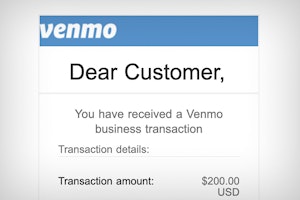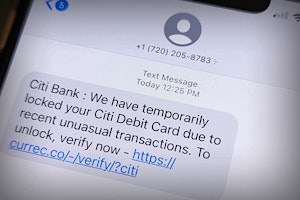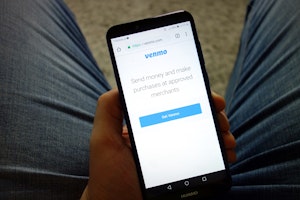How To Tell The Difference Between a Real Businesses & Illegal: Pyramid Schemes
Pyramid Schemes In Depth
- What Are Pyramid Schemes?
- How Do Pyramid Schemes Work?
- Pyramid Scheme Laws by State
- Pyramid Schemes Vs. Multi-Level Marketing
- Pyramid Schemes Vs. Ponzi Schemes
- Red Flags of Pyramid Schemes
- Most Common Types of Pyramid Schemes
- How to Beat Pyramid Schemes
- Fallen Victim to Pyramid Schemes?
Like the famous structures in Egypt with which they share their name, pyramid schemes loom large in the world of scamming and have—in this case, unfortunately—lasted the test of time.
Thankfully, there are a few ways to look out for and avoid getting involved with these illegal ventures and avenues to take if you’ve been approached by someone involved in a pyramid scheme.
What Are Pyramid Schemes?
Pyramid schemes are a widespread type of scam revolving around a “trickle-up” theory of economics. You’re asked to invest in something—typically something you’re told will “get you rich quick”—and a portion of that investment is then delivered to more senior members of the club or company.
Essentially, pyramid schemes work through a network of recruiters whose job is to find new group members. Recruiters get a cut of their recruits’ initial investments, and other portions of the proceeds get distributed to other higher-ranking members.
Once you get involved in the venture, you become a recruiter, too, either being required or heavily incentivized to find more people willing to pay to join. After all, this is how you’ll get paid.
Did You Know?
There is no product being sold in pyramid schemes, and the only incoming money comes from new members, which is why people must be recruited constantly. In fact, that’s how the entire company gets paid.
Eventually, the structure of the scheme starts to represent its namesake:
- If everyone is charged with bringing in just two participants, the person at the top will have two people
- Then those two people each also recruit two more people
- Then, those in a third layer of four people bring in a total of eight new recruits, and so on.
- All the while, the person at the top is reaping the benefits of the exponentially expanding tiers of subordinates, all kicking money up the chain
These schemes are primarily motivated by one thing: Getting money for nothing. But they all collapse eventually, as the math of such constant expansion never adds up.
How Do Pyramid Schemes Work?
Pyramid schemes and Ponzi schemes are illegal because, by design, they eventually fall apart, leaving many participants out in the cold.
- It starts with one: A pyramid scheme starts with a founder, the metaphorical "top" of the pyramid, who recruits a small number of people to promote their product or service.
- New recruits recruit others: The new recruits are incentivized to recruit new members, and they take a share of the profits of the people they recruited and pass a percentage to the founder.
- The pattern is repeated: Each new member recruiting more new members with money getting funneled back up the pyramid.
As the pyramid gets bigger, it gets harder and harder for new members to make any money because of the amount being paid to all of the linkages up the chain. Because it grows exponentially, it eventually collapses, and the majority of the people (except the few at the top), lose their money.
Here's a short video by Stacy Bosley that explains Pyramid schemes and how to spot them.
Most pyramid schemes are prosecuted under state legislation. However, the Federal Trade Commission (FTC) and the Federal Bureau of Investigations (FBI) investigate and bring cases against pyramid schemes under the FTC Act. According to the FTC, the Act broadly prohibits "unfair or deceptive acts or practices in or affecting commerce."
That Act allows the Commission to file suit in federal court and seek a variety of equitable remedies, including injunctive relief, a freeze over the defendants' assets, a receivership over the defendants' business, and redress or restitution for consumers.
Pyramid Scheme Laws by State
At a state level, pyramid scheme cases are handled by the Attorney General's Office.
State |
Pyramid Scheme Statute |
| Alabama | MLM Law: Alabama Unlawful Trade Practices Section 8-19-5 |
| Alaska | Alaska Stat. § 45.50.471 Unlawful Acts and Practices |
| Arizona | ARS 44-1731, et seq. |
| Arkansas | Arkansas Code section 4-88-109: Pyramiding Devices |
| California | Penal Code Section 319 (prohibiting lottery schemes), Penal Code Section 327 (prohibiting endless chain schemes |
| Colorado | Col. Rev. Stat. §6-1-105(1)(q): Deceptive Trade Practices |
| Connecticut | Conn. Gen. Stat. §§ 42-140, 42-145, Connecticut Unfair Trade Practices Act |
| Delaware | Delaware Code subchapter VI: Pyramid or Chain Distribution Schemes |
| Florida | Consumer Regulation Codes 501.201-501.213, Pyramid Schemes: Section 849.091, Fraud: Section 817.034, Theft: Section 812.014, Money Laundering: Section 896.101 |
| Georgia | Georgia Code of Commerce and Trade, Article 15, 10-1-411 through 10-1-417 |
| Hawaii | Hawaii Revised Statutes section 480-3.3: Endless Chain Schemes |
| Idaho | Idaho Code section 18-3101: Pyramid Promotional Schemes Prohibited |
| Illinois | Illinois Statute Chapter 720. Criminal Offenses § 5/17-60 |
| Indiana | Indiana Code 24-5-0.5: Deceptive Consumer Sales Act |
| Iowa | Iowa Code Annotated § 714H.3, Prohibited Practices and Acts; § 714.16, Consumer Frauds |
| Kansas | K.S.A. section 21-3762 |
| Kentucky | Kentucky Revised Statutes section 367.832: Pyramid Sales Act |
| Louisiana | Louisiana Revised Statutes 51:362 |
| Maine | Maine Revised Statutes section 17-81-2305: Pyramid Clubs |
| Maryland | Maryland Criminal Law Code, Section 8-404: Pyramid Promotional Schemes |
| Massachusetts | MGL Chapter 93, Section 69 |
| Michigan | Michigan's Pyramid Promotion Act MCL 445.1528, Michigan Consumer Protection Act, Michigan Franchise Investment Law |
| Minnesota | Minnesota Statutes Section 325F.69(2) – Unlawful Practices: Referral and Chain Referral Selling Prohibited |
| Mississippi | Miss. Code Ann. § 75-24-5 et seq. |
| Missouri | Missouri Revised Statutes Section 407.405 |
| Montana | Montana Code section 45-6-319: Chain Distributor Scheme |
| Nebraska | Nebraska Revised Statute section 87-302(a)(12) & (13): Deceptive Trade Practices |
| Nevada | Nevada Revised Statutes section 52.598.100 through 52.598.130: Pyramid Promotional Schemes; Endless Chains |
| New Hampshire | New Hampshire Revised States section 385-B: Chain Distributor Schemes |
| New Jersey | New Jersey Consumer Fraud Act Code 56:8-2, cases prosecuted under fraud, bookmaking, and lottery crimes |
| New Mexico | New Mexico Stat. Ann. § 57-13-3 |
| New York | Prohibition of chain distribution schemes: General Business Law Section 359-fff |
| North Carolina | NC General Statutes 14-291.2 |
| North Dakota | 2012 North Dakota Century Code, Title 51 Sales and Exchanges, Chapter 51-16.1 Pyramid Promotional and Referral Sales Schemes |
| Ohio | Anti-Pyramid Sales Act: Ohio Revised Code 1333.91, et seq. |
| Oklahoma | Oklahoma Code title 21 chapter 41A: Oklahoma Pyramid Promotional Scheme Ac |
| Oregon | Or. Rev. Stat. §§ 636.608(1)(r), 646.609 |
| Pennsylvania | Unfair Trade Practices and Consumer Protection Law: 73 P.S. § 201-1 et. seq |
| Rhode Island | Deceptive Trade Practices No (§§6-13.1-1 to 12) |
| South Carolina | Pyramid Promotional Scheme Prohibition Act A39, R62, H3883 |
| South Dakota | South Dakota Code section 37-33: Pyramid Promotional Schemes |
| Tennessee | Tennessee Code Sections 39-17-506: Lotteries, Chain Letters, and Pyramid Clubs, 47-18-104: Unfair Or Deceptive Acts Prohibited, and Title 47, Chapter 18, Part 56: Pyramid Promotional Schemes |
| Texas | Texas Business and Commerce Code § 17.461 |
| Utah | Utah Code Ann. §§ 76-6a-4, 13-11-4 |
| Vermont | 9 V.S.A. §2453: Practices Prohibited; Antitrust And Consumer Protection, Attorney General's Consumer Protection Rules 103: Chain Distribution Schemes, 13 V.S.A §2002: False Pretenses |
| Virginia | §18.2-239 |
| Washington | Anti-Pyramid Promotional Scheme Act Chapter 19.275 RCW |
| Washington DC | District of Columbia Official Code §22-3221: Fraud |
| West Virginia | W. VA. Code § 47-15-1 et seq. |
| Wisconsin | Wisconsin Statutes Section 945.12 - Endless Sale Chains and Wisconsin Administrative Code: Agriculture, Trade, and Consumer Protection (ATCP) Chapter 122 - Chain Distributor Schemes |
| Wyoming | Wyoming Multilevel and Pyramid Distributorship Act 40-3-101 |
California Laws Against Pyramid Schemes
Section 327. (Amended by Stats. 1989, Ch. 436, Sec. 2.)
Every person who contrives, prepares, sets up, proposes, or operates any endless chain is guilty of a public offense, and is punishable by imprisonment in the county jail not exceeding one year or in state prison for 16 months, two, or three years.
As used in this section, an “endless chain” means any scheme for the disposal or distribution of property whereby a participant pays a valuable consideration for the chance to receive compensation for introducing one or more additional persons into participation in the scheme or for the chance to receive compensation when a person introduced by the participant introduces a new participant. Compensation, as used in this section, does not mean or include payment based upon sales made to persons who are not participants in the scheme and who are not purchasing in order to participate in the scheme.
Michigan Laws Against Pyramid Schemes
Section 28 of the Michigan Franchise Investment Law (MCL 445.1501 et seq.) makes pyramids illegal in Michigan. The statute reads in part:
[a] person may not offer or sell any form of participation in a pyramid or chain promotion. A pyramid or chain promotion is any plan or scheme or device by which (a) a participant gives a valuable consideration for the opportunity to receive compensation or things of value in return for inducing other persons to become participants in the program or (b) a participant is to receive compensation when a person introduced by the participant introduces one or more additional persons into participation in the plan, each of whom receives the same or similar right, privilege, license, chance, or opportunity.
Violations of Section 28 of the Michigan Franchise Investment Law are a felony, punishable by a fine of up to $10,000 or seven years in prison.
Pyramid Schemes Vs. Multi-Level Marketing
Pyramid schemes are not the only set-ups that use this type of thinking. In fact, they closely mirror a frequently-used business model called multi-level marketing (MLM).
If you’ve ever been approached by someone you haven’t heard from in years, who suddenly wants to take you out for coffee and tell you all about a new diet pill, makeup line, or specialty gadget, you’ve encountered an MLM company.
There are two primary differences between MLMs and pyramid schemes:
- MLMs are legal since there is actually a product being sold, even if some may consider them a public nuisance.
- Pyramid schemes are not legal because nothing is being sold.
Though it’s not uncommon for pyramid schemes to involve a fake story about a so-called product or investment strategy to convince more people to join.
Pyramid Schemes Vs. Ponzi Schemes
Pyramid schemes are also similar in structure to Ponzi schemes.
In both instances, there’s no product, investment strategy, or other sources of sustainable income that the company can rely on. Instead, both types of schemes are propped up by the cash brought in from new investors—and the constant need to recruit these new investors.
Where they differ is who they put in charge of this recruiting.
While in pyramid schemes, every member is responsible for bringing on new members, and every member shares in the investment those new members bring in, a single person primarily runs Ponzi schemes from the top.
Only One Person Profits
Instead of everyone in a Ponzi scheme profiting from new members joining, only the person at the top collects the money. And any regular payments or returns Ponzi scheme members may be promised come from the collective pool of money that forms from everyone’s initial investment.
Red Flags of Pyramid Schemes
Pyramid schemes have been around a long time, and while they, unfortunately, continue to work, they tend to do so by following similar scripts.
As such, there are a few red flags you can look out for when trying to spot a pyramid scheme:
- You’re promised you’ll get rich quick—for little-to-no risk.
- The company isn’t selling something real or tangible.
- The “investment scheme” is complicated, not explained, or full of vague details.
- The company can’t prove it generates retail income.
- Commission processes are overly complex or not at all explained.
- There’s a huge focus on recruitment, or you’re told recruitment is mandatory.
- The start-up costs are costly (even if they promise high returns).
If you spot any of these signs, there’s a good chance you’re dealing with a pyramid scheme. Proceed with caution.
Most Common Types of Pyramid Schemes
Pyramid schemes have taken many forms over the years—and will undoubtedly continue to adapt and grow over time.
But there are a few common types of pyramid schemes:
Investment Companies/MLM Companies
A majority of pyramid schemes disguise themselves as legitimate companies. In fact, a legitimate-seeming purpose is a powerful recruiting tool.
Companies utilizing pyramid scheme business models may claim to sell any number of things, from vacation homes to expensive event tickets to securities exchanges. They may also claim to be some sort of “investing strategy.”
In either case, it’s not true. There is no sustainable factor driving the company’s income, and any profits you receive comes from the money the person below you puts up.
Chain Emails
Chain letters may have gone the way of the dodo, but their modern-day equivalent, chain emails, are still around.
In these types of pyramid schemes, you’re sent a group email explaining how you can “get rich quick.” Then, you’re asked to pay everyone who’s a recipient of the email, with the expectation of getting that money back tenfold.
The email tells you to delete the first person’s name on the list of recipients, replace it with your own, then send the letter back out, with the expectation that everyone who receives it will also respond and pay you in kind.
Blessing Looms
A pyramid scheme for the new age, these scams became increasingly popular during the 2020 pandemic.
These types of pyramid schemes primarily target women. They’re asked to join a “blessing loom,” a “dream weaving circle,” or a “prayer group,” with a special price for joining. The money goes to the most senior group member, who can “graduate” from the group once enough people have been recruited to fill out the circle.
These groups may have legitimate meetings, but to stay in them, each member must recruit at least two more members to the group. As more people join, members graduate to higher levels of the circle until they become the person on top, collecting all the fees before leaving.
How to Beat Pyramid Schemes
With pyramid schemes, as with most scams, the best way to beat the scheme is to stay wary.
If you’re approached by someone you think may be trying to recruit you for a pyramid scheme, you should:
- Approach with caution. Ask the person for time to think about the opportunity and NEVER commit to something on the spot.
- Ask around. See if any friends or family members have heard similar pitches.
- Research what the person is talking about. See if the scheme pops up on any warning lists.
- Ask for more specific, written information about the business, including:
- Business strategy.
- Financial information.
- How profits are specifically earned.
- How commissions are earned or shared.
- Find out if there’s any demand for the product or service being offered.
- Ask if you must buy the product first or recruit more users to continue participating.
At the end of the day, it may be difficult to distinguish a pyramid scheme from a multi-level marketing plan or even just a bad investment. The most important thing you can do is ultimately trust your gut. If something seems off to you—it probably is.
Fallen Victim to Pyramid Schemes?
If you’ve fallen for a pyramid scheme, there are still a few options you can pursue.
First, make sure to leave the group as soon as possible. The promise of more money for staying longer is not worth it.
Once your own position is more secure, you might want to consider:
- Filing a complaint with the:
- Federal Trade Commission (FTC).
- Securities Exchange Commission (SEC).
- Better Business Bureau (BBB).
- Hiring a lawyer to investigate any claims you may be able to make.
- Publishing the story of your experience to help warn others.
If you shared any sensitive personal or financial information with the business in question, you should also:
- Freeze or cancel any accounts that may be connected to the company.
- Contact your bank and credit card companies about the incident.
- Cancel your current credit and debit cards and open new ones.
- Change your passwords and PINs.
- Report the incident to:
Unfortunately, as long as people are trying to make money, people will try to take advantage of others.
Scams Relating to Pyramid Schemes

Secret Sister Gift Exchange Explained (Don't Take Part!)
A gift exchange seems like a great way to spread holiday cheer and take part in the season of giving, but receiving a gift in return is rarely ever the case.

Selling on Facebook Marketplace? Beware of Fake Venmo Emails
Scammers are sending fake Venmo emails to Facebook Marketplace sellers in an attempt to steal login information and money.

Citibank Text Message Scam: Locked Debit Card Alert Is Fake
If you've received a locked debit card text message from Citibank, it's likely a scam. Don't click on the link and delete the text message.

Real Chase Fraud Text Alert or Scam Message?
If you receive a text message from Chase Bank, don't click on any links or call the phone number listed—it could be a scam designed to steal your information and money.

Amex Fraud Text Alert Scams: Spotting a Fraud
If you receive a text message from American Express, don't click on any links or call the phone number listed—it could be a scam designed to steal your information and money.

Fake Verizon Text Messages: How to Avoid a Scam
Verizon may send you text messages from time to time with account updates or data usage alerts, but beware—most of these aren't really from Verizon but scammers.

Get an Unexpected Delivery Alert? It May be a UPS Text Scam
Scammers are using SMS messages to send fake alerts to customers regarding a package delivery. Here's what to know about this scam.

Venmo Text Scam: Don't Fall For These Fake Messages
If you received a text from Venmo with a link to verify a payment or deposit, or are asked to complete a survey in exchange for money, it may be a scam.

Truist Text Alert: How to Identify a Real Text from a Scam
You may think that that Truist have sent you a text alert about your account. Here's how to check if it is actually a scam.

Wait! That Walmart Giveaway Text May be a Scam!
Fake texts are being sent to consumers claiming a hefty sum is waiting for them on a Walmart gift card, but falling for this scam puts you at risk of identity theft.
Guides Relating to Pyramid Schemes

Pyramid Scheme or Legit Multi-Level Marketing Company?
We take a look at some of the biggest names, such as Amway and Tupperware, and decide once and for all which are actually pyramid schemes.

"It Was Very Toxic!" The Bizarre Rise and Fall of LuLaRoe
Rarely do we get a glimpse behind the veil of MLMs, but thanks to Amazon Prime, we get to see how they really operate, specifically LuLaRoe.

How to Beat Bitcoin Scams and Stay Safe with Cryptocurrency
Bitcoin may be the new way to make money, but it's also become one of the fastest ways to lose money quickly, thanks to the rise of cryptocurrency scammers.

How to Get Verified on TikTok
Securing that little blue checkmark can mean brand collabs, sponsorship opportunities, or protecting your unique content from impersonators.

How to Tell if Nikes Are Fakes: From Tags to the Stitching
Nike is one of the biggest brands targeted by counterfeiters and scammers - be extra careful with Nike products from non-official retailers as you could end up with a fake
News Relating to Pyramid Schemes

Urgent CDC Warning: Eye Drops Linked to 3 Deaths, Loss of Vision
The CDC is warning eye drops users of a rare bacterial infection from 2 brands of eye drops. The infection is resistant to antibiotics and has resulted in the loss of vision, loss of eyeballs and the death of 3 patients.

Banks May Refund More Zelle Scam Victims in 2023
Zelle scams have reached a serious volume. New reports suggest that banks are looking at new refund protections for customers in 2023.

Optus Data Breach - One of the Worst Cyberattacks in Australia
Hackers have gained access to 9.8 million customer records from Optus in Australia, exposing personal information such as driver licence, medicare and passport details.

Roe vs. Wade Overturned: Abortion Rights in Your State
Find out what the overturning of Roe vs. Wade means for abortion rights in your state.

Searches for "COVID Vaccine 5G" Hit All-Time High, But Microchips Definitely Not in Vaccine
The number of people searching for the term "COVID vaccine 5G" on Google has just hit an all-time high, but there's one way to be sure that there are no microchips.



